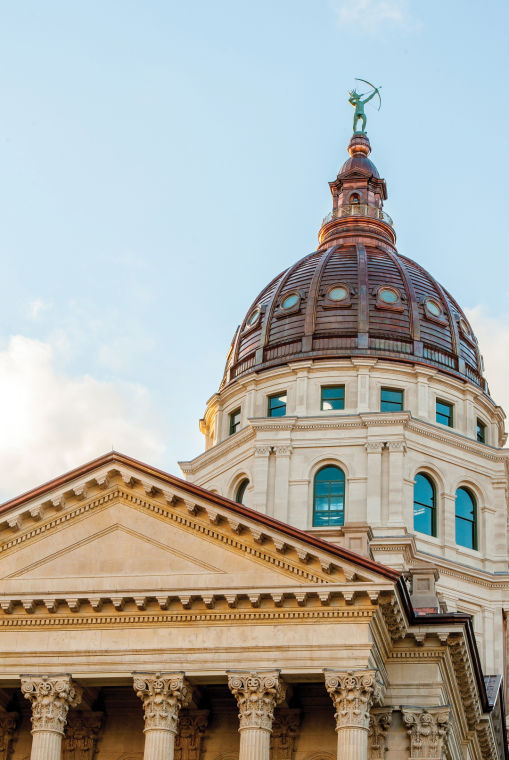Brown v. Board of Education reflected in reaction to a discriminatory house bill
February 27, 2014
House Bill 2453 passed in the house with a vote of 72-49 but was killed by the senate, the bill would have allowed Kansans to refuse services to gays or lesbians by citing religious beliefs.
Many critics argued that the bill simply used religion as a vessel for bigotry. Although the senate stopped the bill, the initial creation and support of the bill raises a number of social concerns.
Many critics and politicians from both sides saw the bill as a futile attempt to openly discriminate against gays and lesbians. If the bill had become a law, it would have undoubtedly been taken to court over its constitutionality.
“It had no potential of becoming law . . . it was blatantly discriminatory,” said Mark Peterson, a professor of political science at Washburn University.
If the bill had become a law, a government employee could refuse to provide services to gays or lesbians. Many critics were concerned about the impact the potential law would have had in the rural parts of the state.
In rural districts with small populations, there may only be one government employee for a specific service. If such an employee were to decline services to gays or lesbians, then these gays or lesbians may not receive the services they seek.
The impact of the law would have been most devastating to any gays or lesbians living in one of the numerous rural districts in Kansas. Critics also argued that employees from these rural districts would be more likely to decline services for gays and lesbians from a religious base. Critics argued that the most religious and socially conservative parts of the state were the rural districts with small populations.
Some critics of the bill made comparisons to the Brown v. Board of Education Case. The case determined 60 years ago this spring, that separate is not equal. If gays and lesbians were refused access to government services it would undermine any notion of equality.
Some critics of the bill were concerned about the consequences of legalizing any form of discrimination.
“The implication would be the broadening of oppression,” said Jericho Hockett, professor of psychology at Washburn.
Hockett stated that the bill reminded her of a quote by Martin Niemöller:
“First they came for the Socialists, and I did not speak out–because I was not a Socialist. Then they came for the Trade Unionists, and I did not speak out–because I was not a Trade Unionist. Then they came for the Jews, and I did not speak out–because I was not a Jew. Then they came for me– and there was no one left to speak for me.”
Hockett says that many of her friends in the LGBTQ community were angered by the bill and expressed a desire to leave Kansas as a result. She argued that if people who are offended by the bill leave then there will be less of a balance in Kansas.
Planting Peace, the organization who runs The Equality House, organized a protest of the bill on Feb. 16. Approximately 300 people attended the protest.
The group formed two lines up the steps of the capitol to reflect the idea of separate but equal. The two lines were labeled “straight only” and “second class citizen.”
“I saw hundreds of Kansans coming together against this,” said Davis Hammet, director of operations for Planting Peace in Topeka.
Although the bill was able to pass in the house, the senate blocked it. It created a great amount of controversy at the national level, but ultimately showed the multiple views held by Kansans in regards to the issue.
Politicians from both sides opposed the bill and it is clear that a divide remains on the issue.



